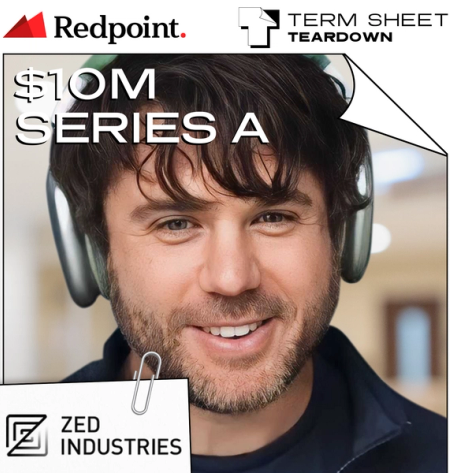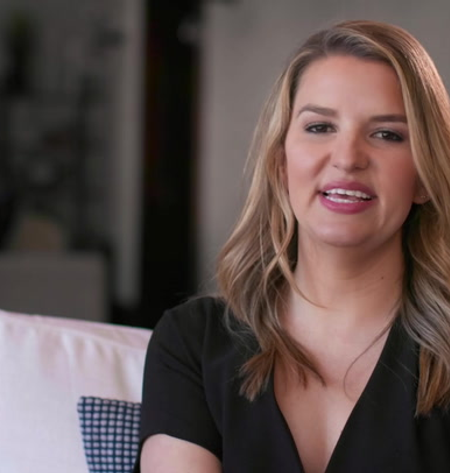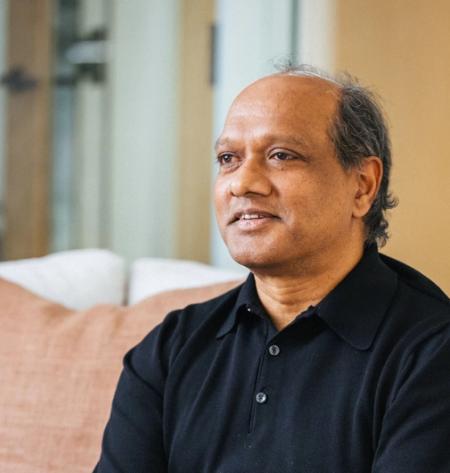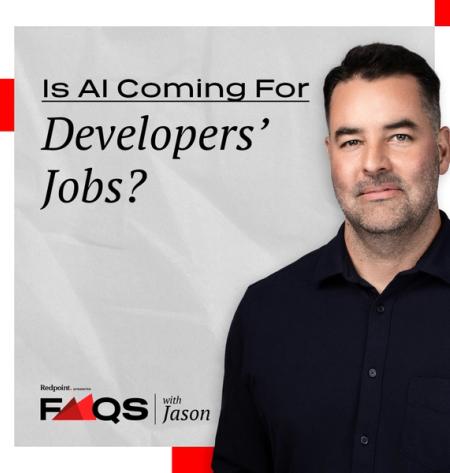Building with High Velocity Execution
EPISODES
Video Transcript
Eric: I'm Eric Glyman. I'm the founder and CEO of Ramp and this is Founder Confidential. In the next few minutes, we'll learn how to grow a successful company, ship products at high velocity, and bring out your team's potential.
00:00:21 Eric: Ramp is finance automation software. We operate the fastest growing corporate card in America with built-in tools to help companies spend less money and spend less time processing their transactions than they otherwise would. Prior to starting Ramp, I had started a company focused on savings, sold it to Capital One, one of the largest financial institutions in the US. And we saw what was a very profitable industry thinking a lot about how to get customers to spend more money to earn more points on the cards. Meanwhile, as we talked to customers, we saw and learned they were thinking not about how to earn more points or cash back, but were thinking a lot about how to get more in their bank account. And so we realized there was a large misalignment. What if there was a card, and frankly software, that was designed not to get people to spend more, but ultimately to get those people to spend less? And if you could do that, could you actually have a unique value proposition, a credit card actually aligned with customers and potentially a stronger business too? I got here today, not by taking one specific action, but by making a little bit of progress each and every week. First, take the time to really assess and understand the idea.
00:01:33 Eric: Why aren't others doing this already today? What are the other solutions out there? What are people already doing? Next, are there simple solutions for you? Before you design a product, it's very hard to change behavior. But if you can understand how to build products to influence behavior, help make it easier for people to have better outcomes. And last, once you've identified there's a clear market opportunity, you understand the steps totake to launch with the product, go get advice. Many people think it's important just to start a company, go ship, and start selling it. But if you go and ask for a sale, you'll get feedback about why it is a fit, why it isn't a fit. If you ask for advice, say, "I'd like to solve this problem for you and I'm building this product that I think will help you do that." Simply ask them, "Would this work for you? What are you looking for?" If you ask for advice, you'll get thought partnership and may actually discover what customers are really looking for in a product. I get excited and I get motivated when I see things moving, when I see things happening.
00:02:30 Eric: And so for me, a big motivation really is trying to understand and visualize what kind of change do you want to affect and making a little bit of progress each and every day. Knowing that I find motivation by seeing change affected, we try to do something very small and simple with Ramp, which is, we count the days. At the end of a seven day period, at the end of a month period, we look back and we ask, "What did we get done over the past 30 days?" Sometimes it's only a little bit. But starting to think about and connect, how do our inputs, how do our actions affect end results and changes that we're excited to see, I find really satisfying and I try to go back and figure out what did I do that connected with outcomes we're excited about? Where did I spend a lot of time that didn't drive outcomes? And look to, over the next month, cutting the amount of time on things that don't drive these outcomes, increasing on things that matter. And for me, this is a great feedback loop to make sure I'm spending time on things that I find exciting, that are driving impact, and ultimately will help you get closer to building a business that matters. One of the hardest parts about running a company is that you can work a hundred hour weeks and that can matter less than five hours in just the right place or even a 30 minute meeting or a post on social media that that can go and run wild. It's really about giving yourself the time and the space to ask, "What did you do over the past month that matter?"
00:03:49 Eric: Between meetings, try to ask over these next 30 day periods, "Did I get more done? Did I achieve more?" And really a lot of running a business is the act of trying to find leverage, to focus people and yourself on things that actually drive outsized results. Do that more often, cut the rest. For companies that are considering how to build and iterate very quickly, consider that there are different types of building. At Ramp, we operate what is the fastest growing corporate card in the US. Now, if you're a customer, you swipe the card and it doesn't work, you're not going to be too happy. You're not going to trust your financial institution, your partner. And so one of the things that was very important was that we make sure that some parts of Ramp's engineering and product infrastructure was actually designed for low latency. The piece of engineering, of innovation on that, is about completeness, about being very high speed, and being impossible to really take down. However, there are other parts of our infrastructure that are very important to go very fast. And so we have separate teams of product and engineering cycles that are designed explicitly to be shipping new product. In some cases, hourly. Other cases, daily. In other cases, at maximum, every two weeks. And what I would suggest is really thinking through where do you need to move slow, where do you need to move fast, and actually designing different processes and different ways of working for each. Where many companies struggle is that if you are succeeding at growing very, very quickly. For example, if your business is growing, let's say 20% a month, which is a very fast pace to grow at, it means that every three months you'll be operating a company that is twice as large. And that means that the things that made you successful may be the very things that actually hold you back.
00:05:39 Eric: Your job as a founder, as an executive, as a leader on your team, is to be very clear, what is most important and make sure that the way that you're spending your time actually correlates to the outcome you're trying to drive. For any company that wants to move at a high pace of execution and a high velocity, it all comes down to breaking down the steps that you're actually taking to understand your own performance. For example, many people say they want to be recruiting the best, that they want the best processes, but a lot fewer actually look to understand your own funnel. How many people did youactually reach out to over a period of a week? Is that increasing over time or is that decreasing over time? How fast was your process for a candidate between first contact, second contact, ultimately interviews, and close. What was the period of that? How does that change over time? When you're making a close, do you look at win rates and close rates? It's not about one particular trick or one hack that will help you execute quickly. It's about really identifying the constraints and if things are taking too long or you want to move the constraint to ultimately an area that will drive more leverage for you, doing it. So fast execution velocity really isn't about doing things faster, it's really about understanding where does leverage come from? The successes, but also the breakdowns in your own process and thinking each and every cycle about how you can improve the efficiency of that. When employees arrive at Ramp on day one, I often ask, "What brought you here?" Both to hear it from them and also too, that I can internalize and understand what are their goals, what are their aspirations, and how can I be a partner in helping them achieve that? I think a hallmark of many companies is they say, "We're trying to grow the company, deliver great products, hire great people" and if you ask what are they accountable for, what is the company actually driving towards, you'll find a litany of answers. They're trying to grow mind share, they're trying to close new customers, they're trying to improve the pitch, they're trying to hire new people.
00:07:39 Eric: It is incredibly hard for not just leader of companies, but frankly anyone working in a company to know, what does success look like? So I think one of the best things that leaders of companies can do is to say what ultimately would a great week, a great month, what would a great quarter look like? Ideally you've got one metric, one clear and measurable outcome you could be driving, but it's actually spelling out for your team over the next 90 days, if you're able to achieve this, this is A+ work. If you achieve this, this is B, this is C, this is D, this is F. Actually going through together shaping what things can look like and giving folks the freedom to decide on the inputs that can drive closer to those outputs is a really great way to do this. I think when thinking about mental health and achieving work life balance, I think people get a lot of stress when they feel like they have no agency in the outcome, when you can't change the things that matter to you. In helping yourself and helping your company achieve lower stress, it's really thinking about what are your goals, what can you do that will help you actually accomplish your goals, and what can you cut that is causing you stress but is yielding nowhere closer to your outcomes? Next, another thing for me that I find is helpful when I'm getting stressed is trying to step back and ask, "Is the stress helping me?" I think in areas where it's high pace, high execution, and you just need to go, go, go and act, stress can be a very good thing, so long as it's channeled and focused. However, when I need to be more thoughtful, I'll often find that stress means that I'll make worse decisions. I don't have mental clarity, so trying to periodically ask yourself, "Is this stress helping?" Or if it's not, can I step back, find some space, calm down, and try and give yourself the space to ultimately work through the challenges that you're trying to execute against? I think the best advice I've received as a founder and CEO now of a more scaled company is it's not to have the ideas. My job is to bring out others' potential. I am about 0.3% of the headcount. I'm just not as helpful as I once was and my impact is a lot more limited. But what I can do is create the clarity on the company's strategy to understand other people's strengths, what makes people great, why we were excited to work together with them, empower them, and ultimately work to serve and help others in their role and build a stronger company.
00:10:11 (gentle music)









